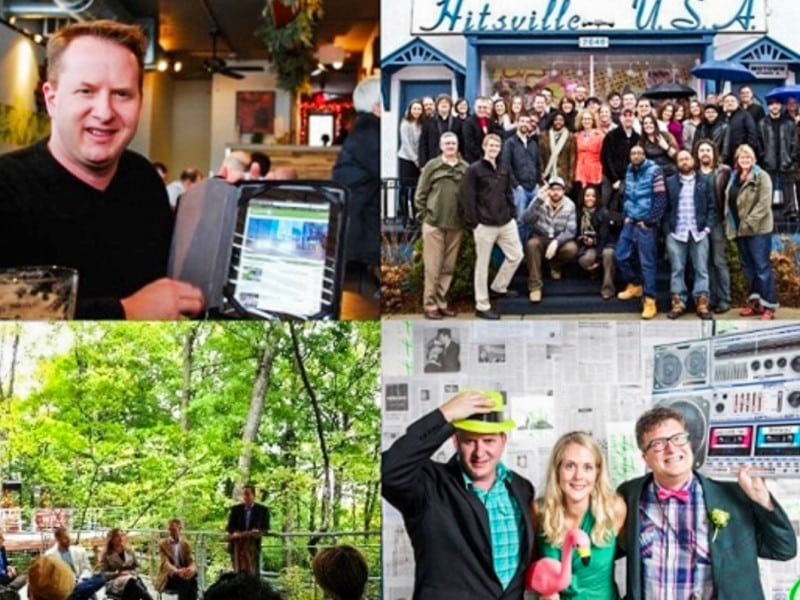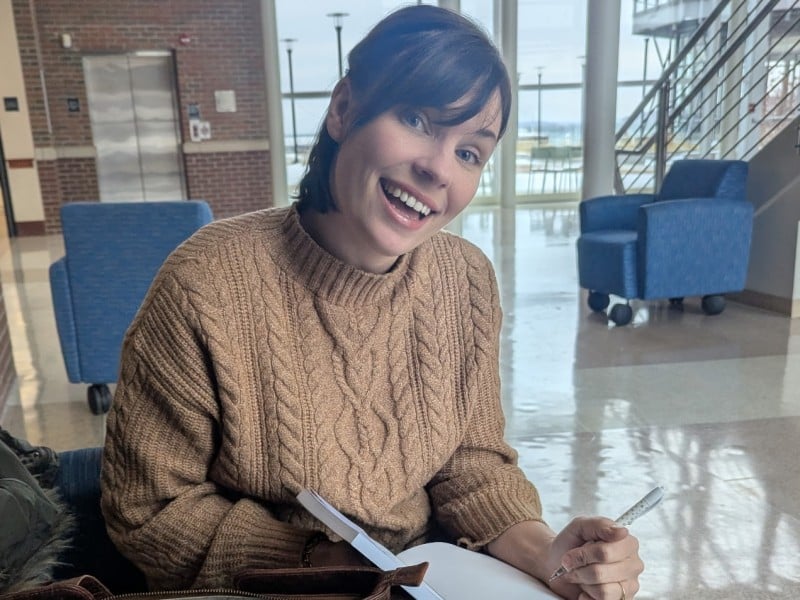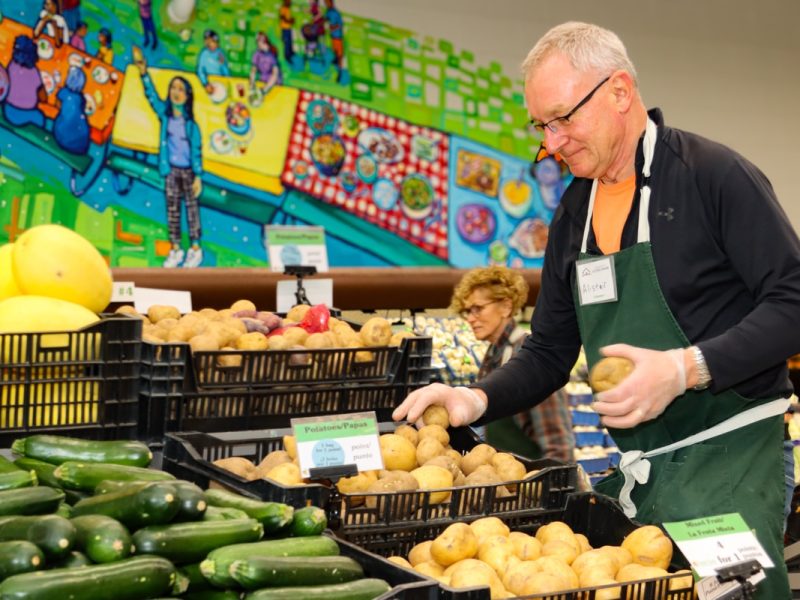KDL addresses barriers due to poverty
Despite having a treasure trove of free resources — many of which are available to local residents, even without a library card — there are still barriers preventing community members from access. Whether it’s lack of transportation, basic food needs or career development, Kent District Library has programs and partnerships to help support our underserved community members.
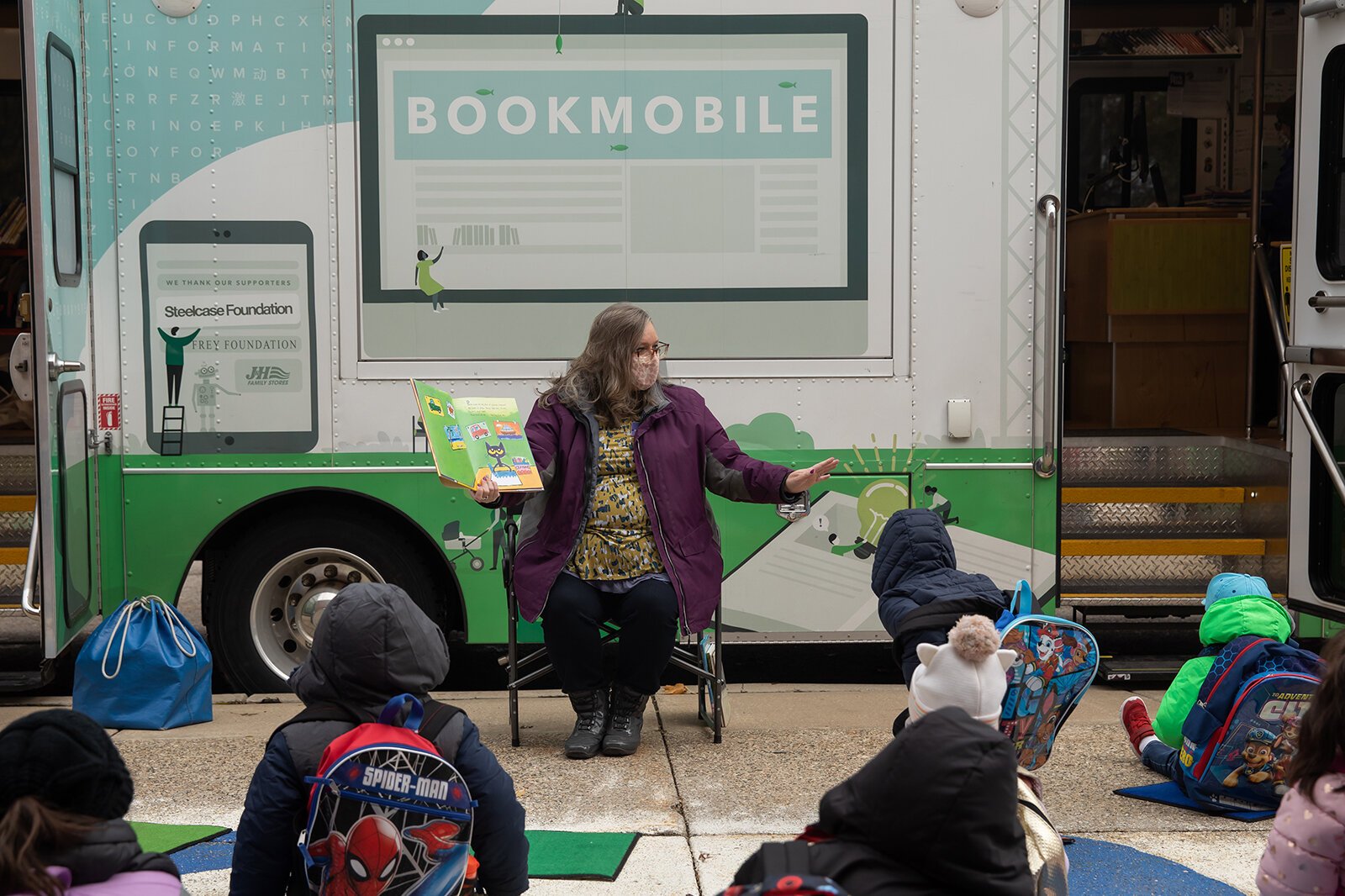
Libraries are far from just books on shelves. If this series has taught us anything, it is just how vast, adaptive and resourceful libraries are for the entire community. Building an educational foundation for youth, serving lifelong learners, fostering community connections and shifting to address disparities, libraries are true community-builders.
Kent District Library (KDL) serves an entirely diverse, large population with branches scattered all over the region. With that large population comes potential barriers, both in rural and urban areas. Joyanne Huston-Swanson, KDL Bookmobile operator and community engagement employee, says KDL’s partnerships with community organizations are in place to help break down barriers that vulnerable and underserved community members may experience when attempting to access resources.
Even though library cards can be acquired at no-cost to community residents, the fact is, poverty still impacts people’s day-to-day lives in many ways. Oftentimes, a trip to the library is looked upon as a luxury, rather than a basic need fulfilled. First comes food on the table, rent or mortgage payments, utility bills, day care costs and more. Huston-Swanson says oftentimes, poverty is not the result of unemployment.
“For the most part, even when we’re talking about issues of poverty, what we’re finding so much, especially in the West Michigan area, is that it isn’t that [people] aren’t working or that they’re not working enough,” she says. “It’s almost the opposite. They’re having to work too much in order to make ends meet and the cost of rent, owning a home, food costs, and child care costs are rising exponentially. Sometimes, the wage that they’re earning with those different jobs is not meeting that demand any longer in their lives.”
Left scrambling for necessities like food, health care and rent payments, families aren’t often thinking about fun activities or entertainment outlets. “One of the last things on the list of stuff to do is sometimes the library. It’s seen more as entertainment and sometimes people don’t have time for that,” Huston-Swanson says.
Hence, part of KDL’s mission to ‘meet people where they’re at,’ and provide resources to the community to build an educational foundation, foster career and personal growth and make overall life “a little easier,” says Huston-Swanson.
“What we’ve been focusing on as an organization is just trying to alleviate some of the stresses and strains,” through resources like the small business and entrepreneur tools on KDL’s website or through mel.org. The Library network also collaborates with local Chambers of Commerce, including the Grand Rapids Chamber of Commerce and West Michigan Hispanic Chamber of Commerce.
“They are also a wealth of information and tips and tricks, training, and tools that will help people be that much more successful, and working smarter and not necessarily harder,” she says.
Because transportation is often a barrier, KDL’s Bookmobile acts as a traveling community center, full of education, entertainment and important resources. Even if families can’t hop in their minivan or use their bus pass to visit one of the library’s branches, that doesn’t mean their needs go unmet.
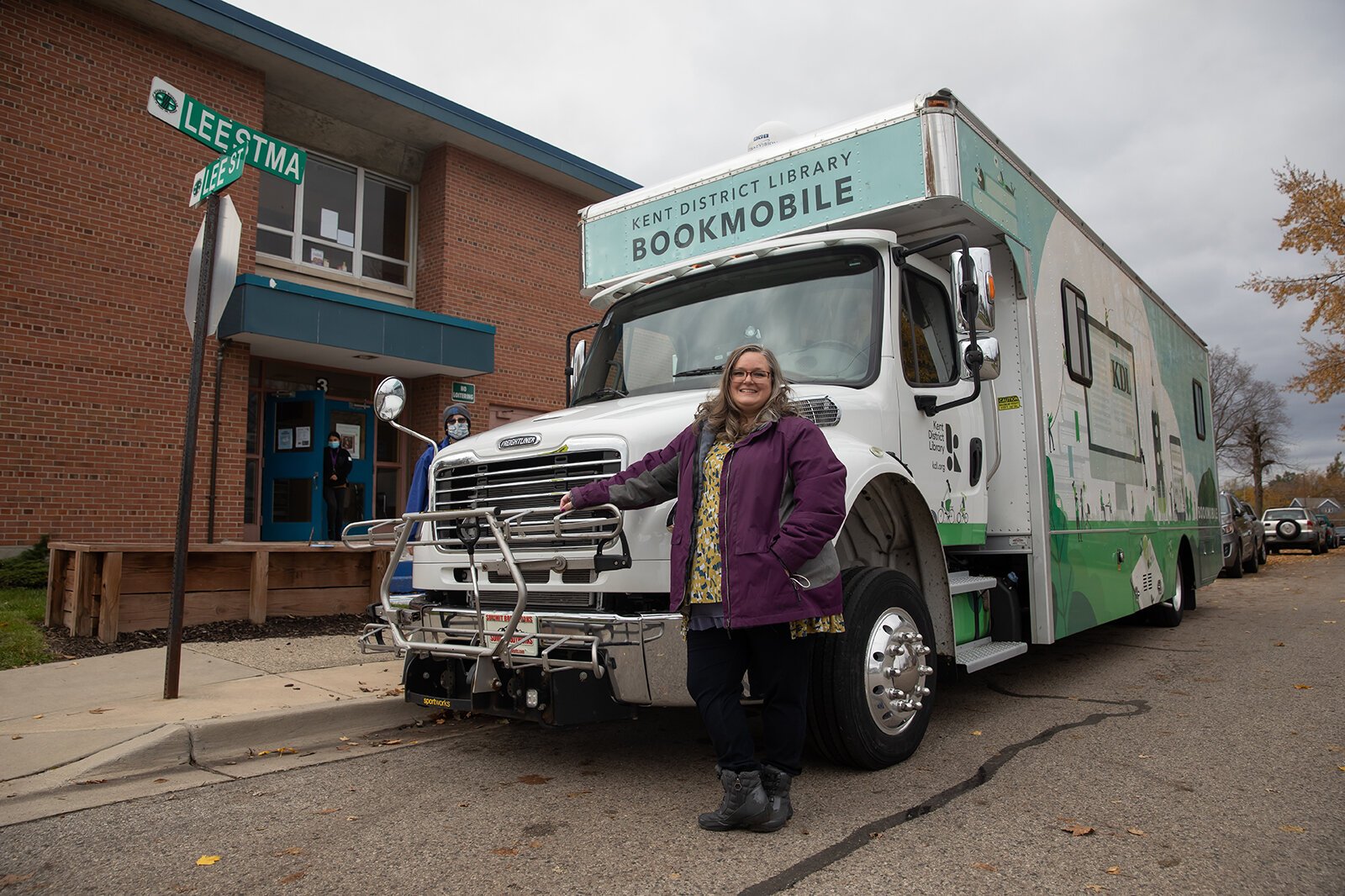
“With the bookmobile, we’re also going out into the community, and bringing library services to where they already are,” Huston-Swanson says. “We’re just trying to meet people where they are, instead of hoping they can come to us.”
One way they seek to do this is by leveraging the local schools. “[Partnering] with our area schools, it’s helped us to reach individuals. It kind of breaks down that barrier of not having enough time or maybe the parents are sharing a vehicle, so it’s not like they can make an extra trip to the library to do these things. Going where they already are for parent meetings or for literacy nights, or afterschool pickup, we’re meeting them and making it a two-fer,” she says.
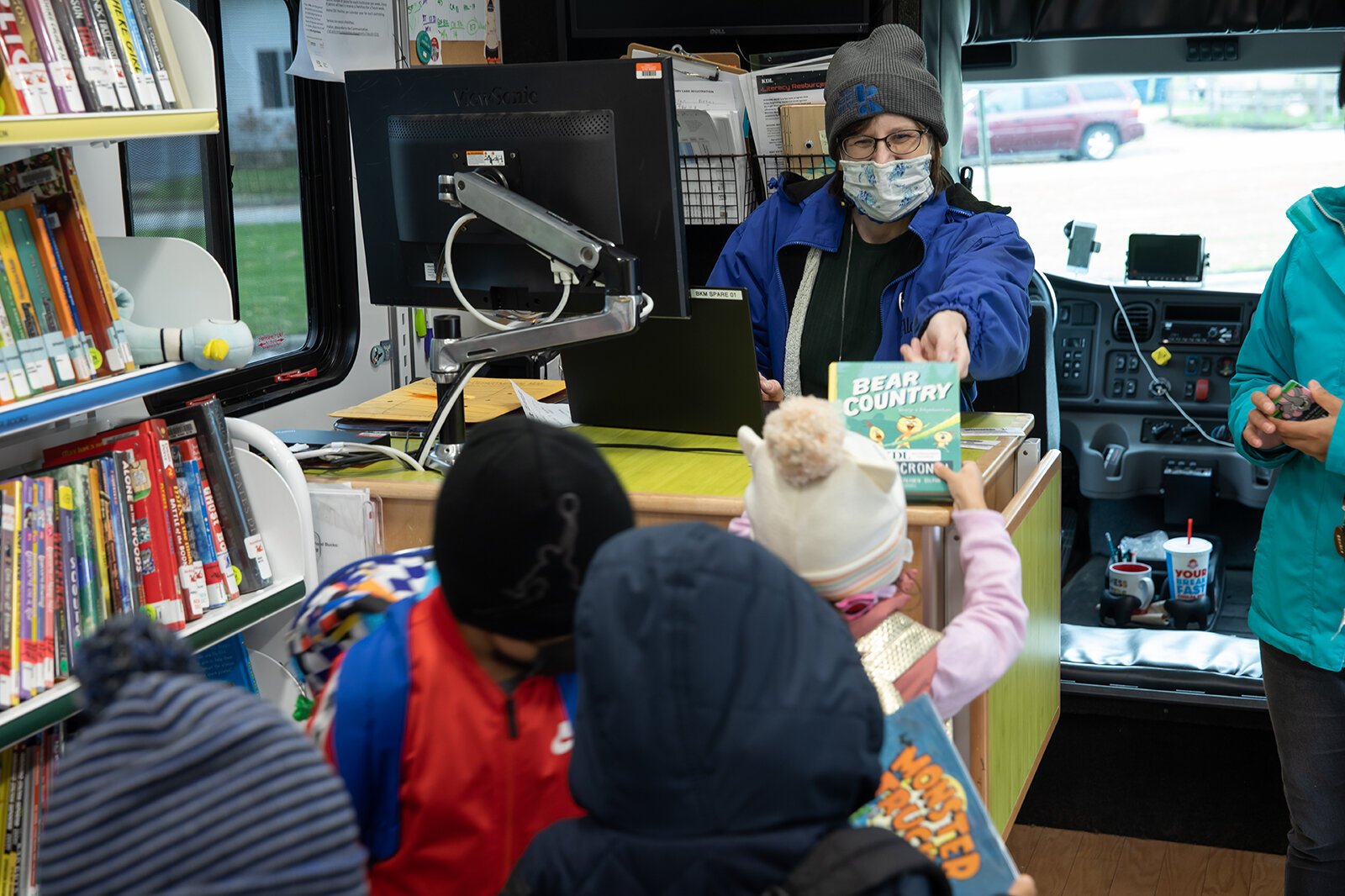
Last year, the Bookmobile partnered with Feeding America West Michigan, and visited their mobile pantry sites. “We attended seven or eight a month, and just matched those clients who are waiting to pick up their food boxes with resources that the Library has, and different programs and initiatives that we’re highlighting. We’re also giving out free bundles of Little Free Library books if they have an interest in them.”
Huston-Swanson says “it’s been a real treat to be able to get to know those people and find things that meet their needs.”
“We try to get there early and meet with clients as they’re waiting for the distribution to start, so we don’t hold up the line as they go through and get their food. There are lots of people who really appreciate it and are very receptive to it. There are some families who have resources in short supply, and they really enjoy being able to get kids books or nonfiction books because they’re homeschooling and things like that.”
These offerings don’t even require a library card. “We’re just meeting people where they are and helping them to connect the Library to something that could be an essential resource for them.”
Sometimes essential resources aren’t explained clearly, so the access barriers still remain. Huston-Swanson says earlier in the summer, KDL had information from the Double Up Your Food Bucks program. “We were giving that out and helping to explain how people could access the fresh foods and available things at farmers markets, and double up their food bucks as part of their Bridge [Card] or food stamp program. Sometimes, it’s just being able to hear information another time in a slightly different way that helps it really sink in so they’re able to really utilize the information that’s been provided and leverage things for the betterment of their families.
“We’re doing our best to be of added value and enhancement, so that life is just better,” she says.
Literacy Matters is a series focused on the importance of knowledge, community resources seeking to remove barriers to access, and the value of our library systems to society. Literacy Matters is supported by Kent District Library.
Sarah briefly lived in Grand Rapids years ago, before moving back to Lansing, but that West Michigan love never really left her heart. Through her coverage on small businesses, arts and culture, dining, and anything mitten-made, she’s committed to convincing any and everyone — just how great the Great Lakes state is. Sarah received her degrees in Journalism and Professional Communications. You can find her in a record shop, a local concert, or eating one too many desserts at a bakery. If by chance, she’s not at any of those places, you can contact her at spohn9@gmail.com

